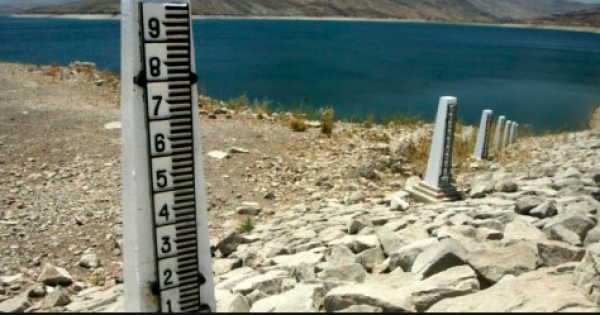
Regarding a column published this September 11, entitled Water crisis, legal drought and water road; I would like to make a few clarifications because of certain expressions that could lead readers, not knowledgeable of our Aquatacama project, to erroneous conclusions.
Aquatacama has nothing to do with the reform of the Water Code, which will not generate more water, but could eventually modify its distribution among different users. The purpose of Aquatacama is similar, as it will modify the geographical distribution of water between the different regions of Chile, supplying those that need it with water from areas that do not use it.
Our project is not alluded to when it points to the agro-export sector and the large mining sector in its accusations. Aquatacama will benefit all users from all regions of Northern Grande and Chico of Chile: the nearly 3 million inhabitants through sanitary and APR Committees; to the large and small industry that does not have access to desalination; and agriculture, both the large export and the small family and indigenous.
Laurence Golborne, when he was Minister of Public Works, did not commission any studies. It was the Government of France that donated the Aquatacama feasibility study to the Government of Chile, through a French subsidy system. It was forwarded by the Ambassador of France to the Minister at a public event on 8 October 2012.
Aquatacama is not “a floating coastal water road”: the Aquatacama pipe goes about 100 or 200m deep, simply licking (and not anchored) on the seafloor.
Aquatacama does not seek to obtain state financing: the Chilean concession system allows a public-private partnership where the latter provide the financing. Our request for a public interest statement is made on the basis of normal market conditions without any subsidy from the State.
The document carried out by Fundación Chile in 2012 does not conclude at all what is expressed in terms of the high economic impact, the impact on the environment or the minimum social benefit. In any case, if it is expensive it is simply because it supplies much more water. It is normal for a 100m3/s project to cost more than a 1m3/s project, but also the benefits are greater.
The trade union agencies cited in this column criticize the terrestrial project of Corporación Reguemos Chile but not Aquatacama, since its water intake is at the mouth where there are no more human users downstream. It does not “see agricultural and industrial production in the south to supply the mining and agro-industry of the north and center of the country”. The only downstream user of Aquatacama’s water intake is the ecosystem of the mouth and boom of the river in the sea, whose needs will be determined in time by the Environmental Impact Study. The recent report of CORFO carried out by the University of Chile takes into account these ecological needs, and concludes that, at the mouth of the Maule and Biobío rivers, there are water availabilitys per 500m3/s on average annually.
Aquatacama is not an initiative for the benefit of Via Marina, even if it will logically generate some utility. In fact, Aquatacama is a mere carrier of a State resource as the corresponding water rights are the property of the MOP’s DOH. The Government of Chile understands that such a resource is of greater social use in a place other than its natural origin and prefers to take it there. Aquatacama will charge for the transport service in the modality of porte payable at destination by the beneficiary and will not charge for the water delivered at destination. Economically it comes to be the same. Politically it’s very different. And as in all concessions, the fee will be properly monitored by the Chilean authorities to avoid any undue profits.
Clearly, Aquatacama’s philosophy is to “multiply the breads”, not to “decrease the diners”, as seems to be the inclination of some. Aquatacama will be the “aorta” of Chile that will not only protect the norin agriculture from death to which the condemnation of climate change will inevitably, but will generate great economic and social development as demonstrated by the aforementioned study of Fundación Chile.
In conclusion, I hope that the Government will soon announce, among the measures to combat water scarcity, the Aquatacama Public Interest Declaration that its potential beneficiaries are so desperate for, as evidenced by the numerous letters of expression of interest he has received.
"El reclamo puede ser genuino, pero construido sobre una mentira", apuntó el presidente Javier Milei…
El gobernador de la provincia de Buenos Aires, Axel Kicillof, encabezó un acto en Ensenada…
El diputado nacional de La Libertad Avanza, José Luis Espert, expresó su confianza en la…
Tras la masiva reaparición de Cristina Fernández de Kirchner, el presidente Javier Milei apuntó contra…
El principal propósito de la nueva comisión es evaluar los recursos humanos en el Senado,…
En una medida que busca redefinir las condiciones de los seguros de automóviles en Argentina,…
Esta web usa cookies.